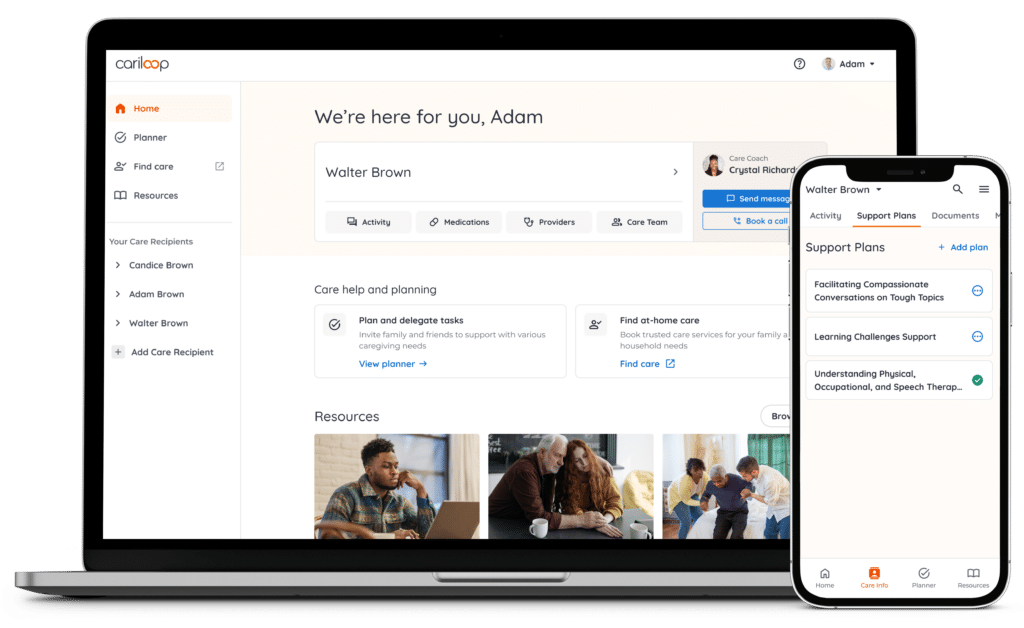In The Loop - The Cariloop Blog
Featured Post
The “sandwich generation” refers to adults caring for aging parents (or other family members) while raising their children. When employees feel overwhelmed by caregiving responsibilities, their work performance suffers.
Latest Posts
Keep Reading
Ready To Learn More?
Schedule a demo and see how Cariloop’s caregiving solutions will have a positive impact on your employees and business.









